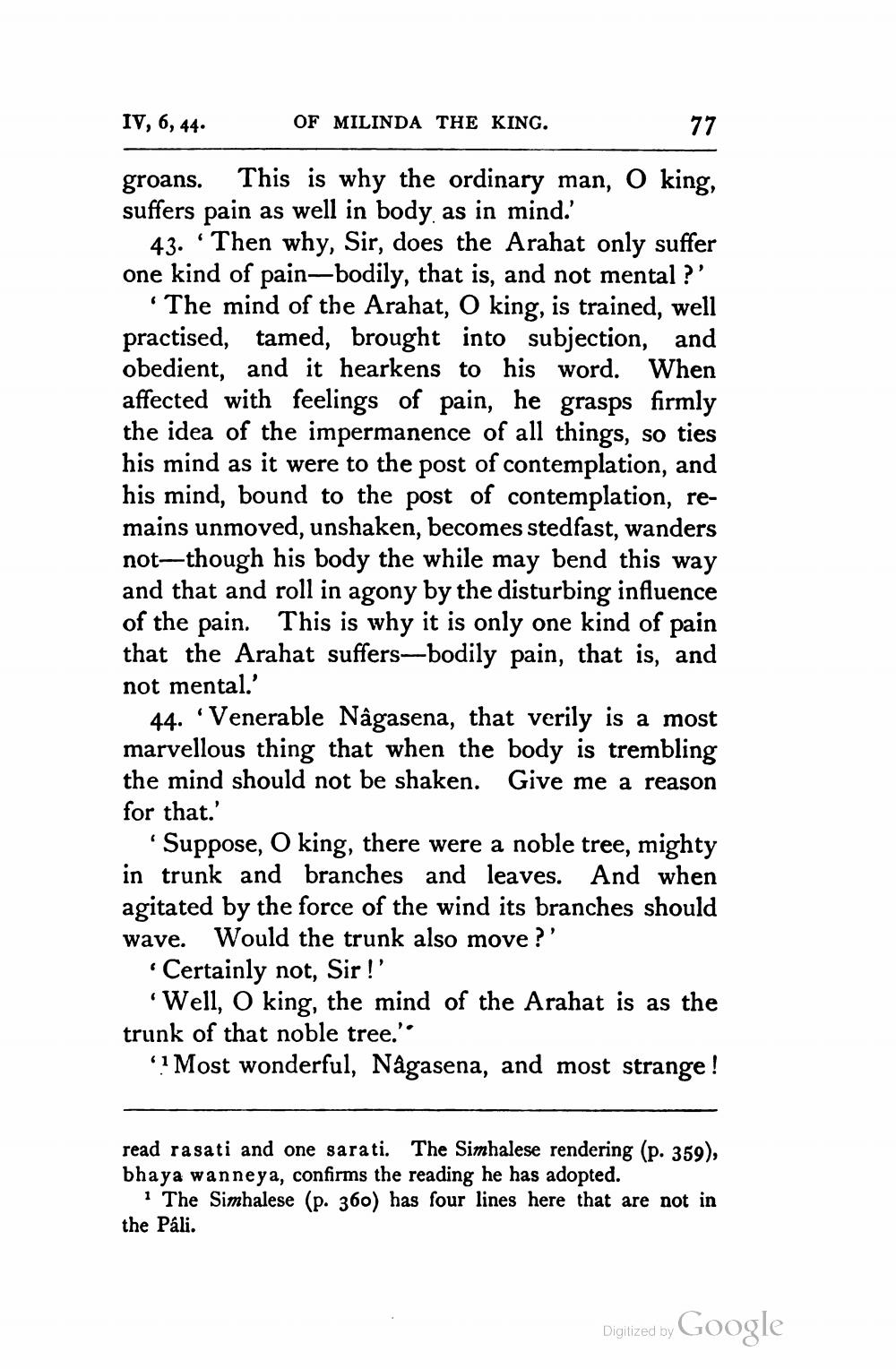________________
IV, 6, 44.
OF MILINDA THE KING.
77
groans. This is why the ordinary man, O king, suffers pain as well in body, as in mind.
43. Then why, Sir, does the Arahat only suffer one kind of pain—bodily, that is, and not mental ?'
The mind of the Arahat, О king, is trained, well practised, tamed, brought into subjection, and obedient, and it hearkens to his word. When affected with feelings of pain, he grasps firmly the idea of the impermanence of all things, so ties his mind as it were to the post of contemplation, and his mind, bound to the post of contemplation, remains unmoved, unshaken, becomes stedfast, wanders not-though his body the while may bend this way and that and roll in agony by the disturbing influence of the pain. This is why it is only one kind of pain that the Arahat suffers—bodily pain, that is, and not mental.'
44. Venerable Nâgasena, that verily is a most marvellous thing that when the body is trembling the mind should not be shaken. Give me a reason for that.'
Suppose, O king, there were a noble tree, mighty in trunk and branches and leaves. And when agitated by the force of the wind its branches should wave. Would the trunk also move ?'
Certainly not, Sir!'
Well, O king, the mind of the Arahat is as the trunk of that noble tree.''
"? Most wonderful, Nagasena, and most strange!
read rasati and one sarati. The Simhalese rendering (p. bhaya wanneya, confirms the reading he has adopted.
1 The Simhalese (p. 360) has four lines here that are not in the Páli.
Digitized by Google




